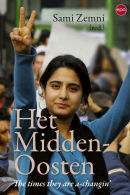Vond u deze bijdrage de moeite waard? Geef ons dan uw steun.
(14-05-2013) USAID: Missionaries of US Imperialism
(14-05-2013) Iraq, Syria and the death of the modern Middle East
(31-03-2013) The Treason of the Intellectuals
(16-05-2013) Baghdad market attacks, shootings in north kill 17
(15-05-2013) How Baghdad Fuels Iraq's Sectarian Fire
(14-05-2013) Iraq's invisible refugee crisis
(27-05-2013) Why Maliki Must Go
(17-05-2013) Sectarianism in Iraq stoked by Syrian war
(16-05-2013) Baghdad market attacks, shootings in north kill 17
(16-05-2013) Baghdad market attacks, shootings in north kill 17
(16-05-2013) Baghdad market attacks, shootings in north kill 17
(01-05-2013) Ataque inminente a Ramadi
(01-05-2013) Hawija investigation results revealed
The BRussells Tribunal is independent and wants to remain independent.
The BRussells Tribunal is an activist think tank and peace organisation with a special focus on Iraq. Read more...







 The times they are a-changin' is het eerste grondige Nederlandstalig overzicht dat voorbij oppervlakkigheden en algemeenheden wandelt, en ook nog eens de hele regio bestrijkt, van Egypte en Tunesië tot Marokko, Libië, Syrië, Libanon, Palestina, Jemen, Jordanië, Irak, Bahrein en Israël. Daar bestaat een woord voor: een standaardwerk.
The times they are a-changin' is het eerste grondige Nederlandstalig overzicht dat voorbij oppervlakkigheden en algemeenheden wandelt, en ook nog eens de hele regio bestrijkt, van Egypte en Tunesië tot Marokko, Libië, Syrië, Libanon, Palestina, Jemen, Jordanië, Irak, Bahrein en Israël. Daar bestaat een woord voor: een standaardwerk.